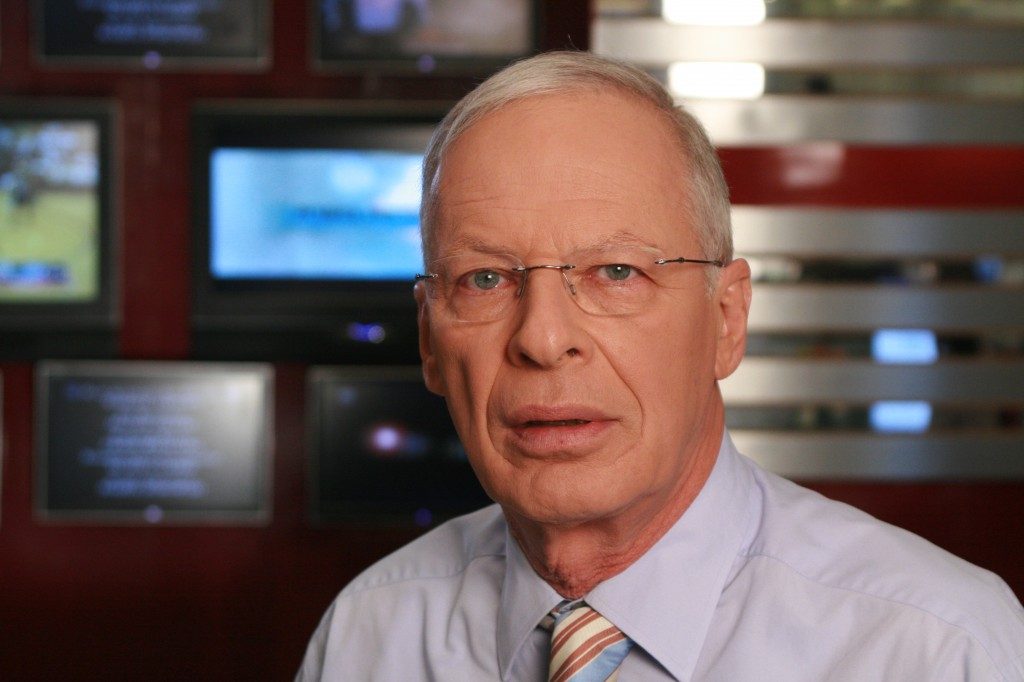IN THE MEDIA
Ehud Yaari to AIJAC Webinar: Gantz move no surprise, will be popular
April 1, 2020 | AIJAC staff

April 1, 2020 by J-Wire Newsdesk
The Australia/Israel & Jewish Affairs Council (AIJAC) inaugurated a Webinar series recently with a briefing by AIJAC Fellow and senior Israeli journalist and leading commentator Ehud Yaari on recent developments in Israeli politics, as that country moves closer to forming a national unity government.
Yaari, speaking from his home in Israel, told the audience that Blue and White’s leader Benny Gantz’s decision to defy half of his own his party and pursue a national unity government with Binyamin Netanyahu and the Likud came as no surprise. It was the least bad option available to Gantz once it became clear that a narrow, left-wing government was impossible.
Moreover, Yaari added, a national unity government between Likud and a large segment of Blue and White would be popular with the majority of Israelis and would also likely lead to a more centrist direction for Israeli politics, because the religious and hard-right parties would be less influential.
Yaari said that, for example, he did not expect the new government to annex the Jordan Valley or settlements anytime soon as hinted at in the Trump peace plan, and overall a centrist mainstream approach to Palestinians would be likely to prevail, thanks to Gantz’s influence. However, he did stress that no one in the Israeli mainstream, including Gantz, sees any hope of resuming peace negotiations with the Palestinian Authority anytime soon.
Regarding Israel’s response to the coronavirus threat, Yaari said that the economic situation within Israel is undoubtedly dire, with around 24% unemployment already. However, thanks to strong economic management under the recent Netanyahu governments, and some US$150 billion in foreign reserves accumulated by the Bank of Israel it can now draw on, Israel was well-placed to weather the storm.
He also stressed that Israel’s efforts to maintain and develop ties with neighbouring Arab states are continuing apace and are unlikely to falter despite the current crisis.
Yaari reported on the mutual interest between Israel and the Palestinians in preventing the spread of coronavirus, with everyone on both sides recognising that for purposes of battling the pandemic Israel and the West Bank cannot be separated and must be treated as a single entity. This has led to some of the best security cooperation ever between Israel and the Palestinian Authority, with even the situation between Israel and Gaza somewhat improving. However, Yaari warned that, while the Palestinians are mostly following Israeli guidelines, there are serious doubts about the ability of the Palestinian Authority security forces to enforce social-distancing rules in many areas.
A large online audience of AIJAC supporters, community members and journalists participated in the socially–distanced gathering, utilising the Zoom webinar platform. Following Yaari’s initial briefing, members of the audience were given the opportunity to direct questions to the speaker.
The briefing with Yaari is the first in a series of periodic AIJAC Webinars, featuring exclusive interviews and online forums with experts, commentators and analysts in Israel, the United States and elsewhere, as AIJAC continues its commitment to fulfilling its role as a premier public affairs and information organisation for the Australian Jewish community.
AIJAC’s next Webinar on April 3 will feature prominent Foundation for Defense of Democracies (FDD) analyst Dr Jonathan Schanzer via video-linkup from Washington DC, who will be discussing “Iranian imperialism under the cover of COVID-19”. For information on how to attend, please contact aijac@aijac.org.au.
Tags: Israel





